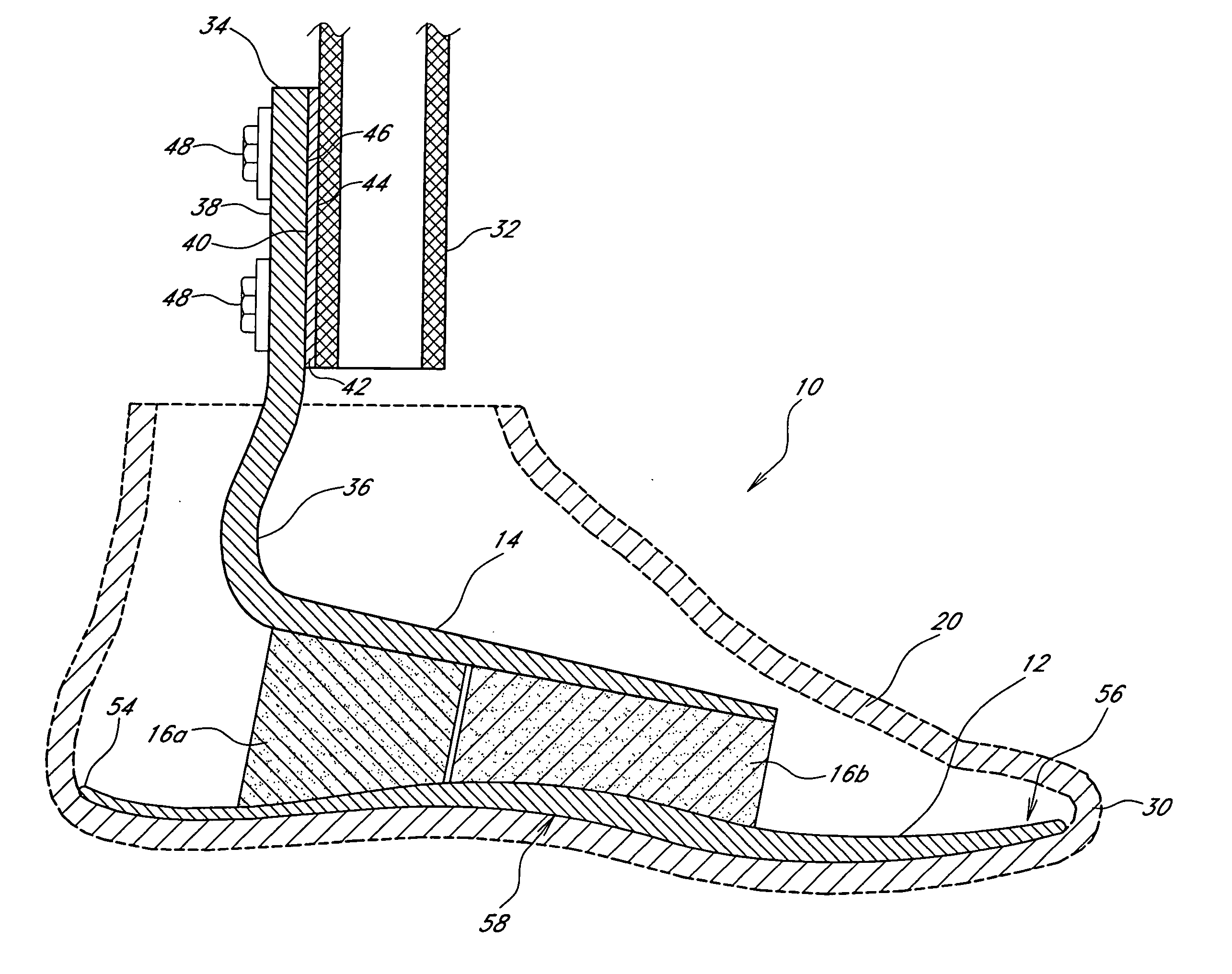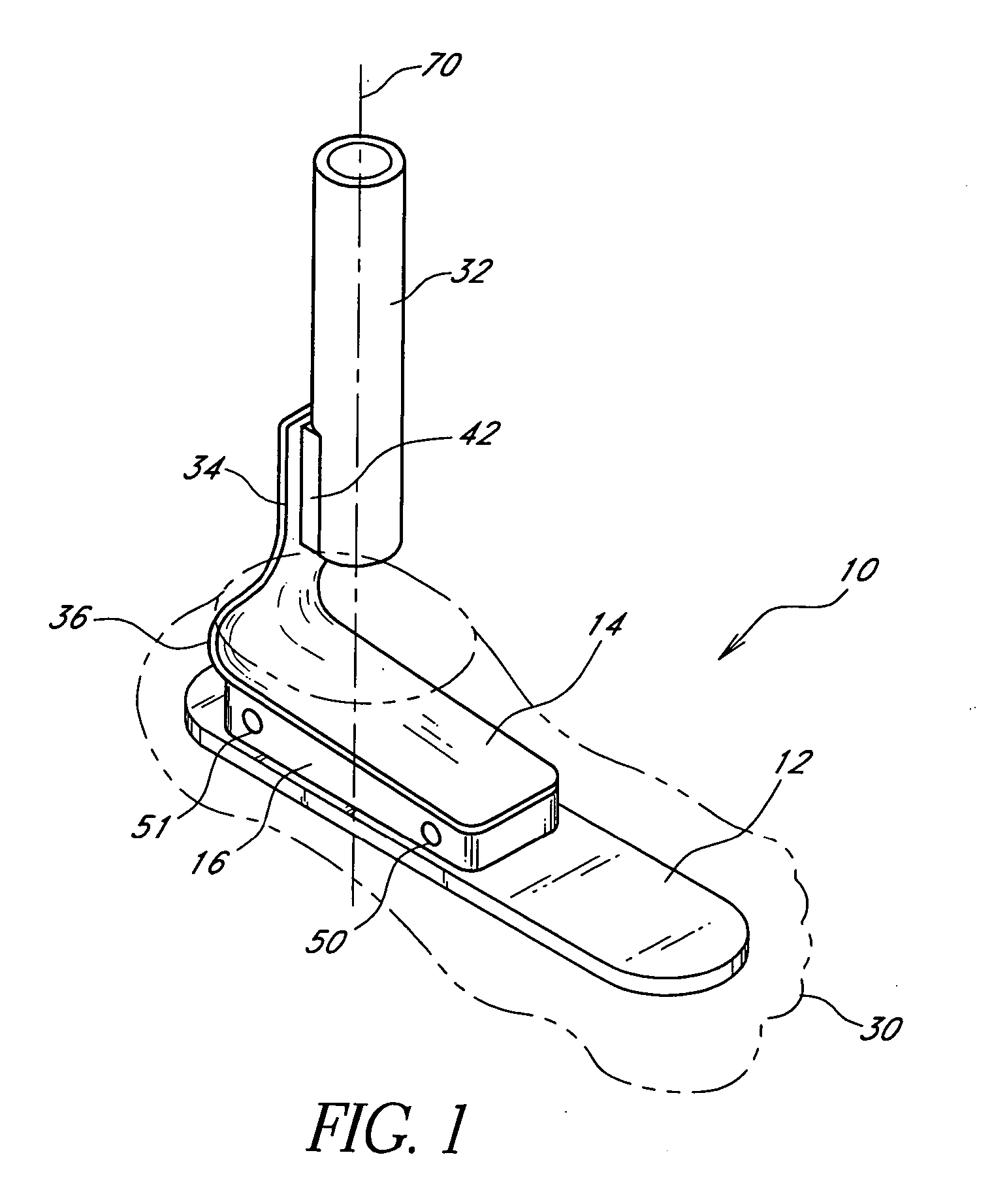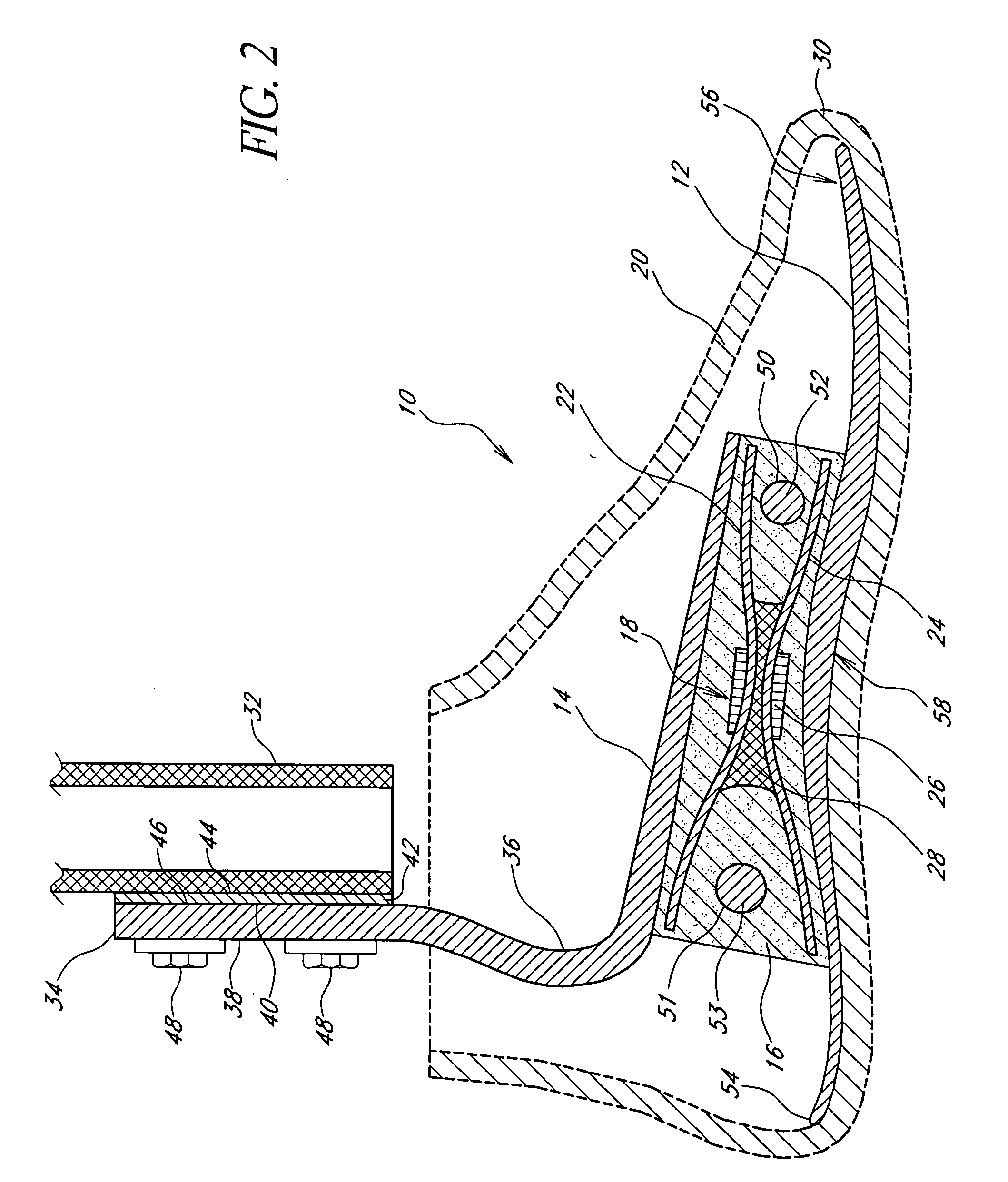Foot prosthesis having cushioned ankle
- Summary
- Abstract
- Description
- Claims
- Application Information
AI Technical Summary
Benefits of technology
Problems solved by technology
Method used
Image
Examples
Embodiment Construction
[0048] With reference to FIGS. 1 and 2, a first embodiment of a prosthetic foot 10 of the present invention is shown in a perspective view and a cross-sectional side view, respectively. The prosthetic foot 10 generally comprises a lower foot plate 12, an upper, smaller ankle plate 14, an ankle layer or block 16 made of resilient material, connecting the foot plate 12 to the ankle plate 14, and a spring element 18 embedded within the ankle block 16. The foot plate 12 has a length and width roughly equal to the approximate length and width of the particular wearer's amputated foot and sized to fit within an outer, flexible cosmesis 30, shown in phantom. The ankle plate 14 and the resilient ankle block 16 have approximately the same horizontal cross-sectional size. The ankle plate 14, ankle block 16, and spring element 18 are centered transversely with respect to and are generally positioned over the back half of the foot plate 12. The ankle block 16 is sandwiched between the foot plat...
PUM
 Login to View More
Login to View More Abstract
Description
Claims
Application Information
 Login to View More
Login to View More - R&D
- Intellectual Property
- Life Sciences
- Materials
- Tech Scout
- Unparalleled Data Quality
- Higher Quality Content
- 60% Fewer Hallucinations
Browse by: Latest US Patents, China's latest patents, Technical Efficacy Thesaurus, Application Domain, Technology Topic, Popular Technical Reports.
© 2025 PatSnap. All rights reserved.Legal|Privacy policy|Modern Slavery Act Transparency Statement|Sitemap|About US| Contact US: help@patsnap.com



